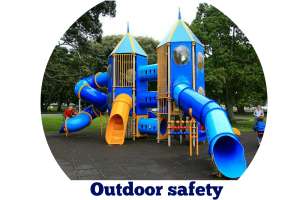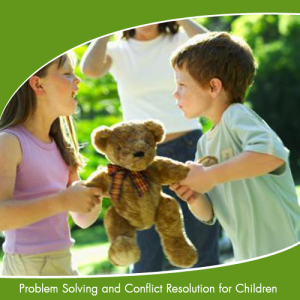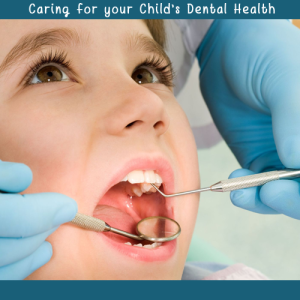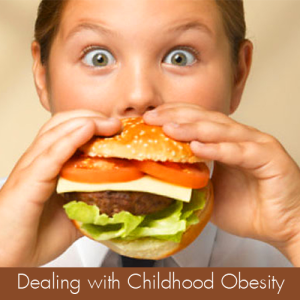In our bid to get our children more outdoor play, we must also safeguard them against seemingly harmless outdoors. This article is does not intend to prevent you from sending your child outdoors to play, but to ensure that when you do so, proper safety precautions are undertaken to everybody has a good time.
How can you help your toddler to talk
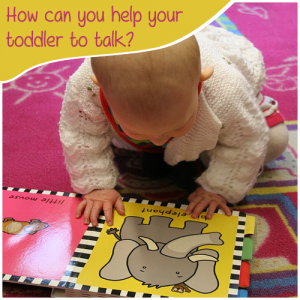 Remember the time when your baby used to turn its head in the direction of your voice? Not only do babies learn to recognize their mother’s voice right from the time they are in the womb,but they also have a natural interest in human voices. [Read more…]
Remember the time when your baby used to turn its head in the direction of your voice? Not only do babies learn to recognize their mother’s voice right from the time they are in the womb,but they also have a natural interest in human voices. [Read more…]
3 Reasons why it is important for your child to play in Mud
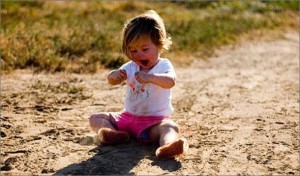
What is your child’s typical day like? I bet it includes loads of activities that involve art, craft,sports and study. Have you ever considered mud? I find children, even the very young ones, are always fascinated by mud. But our current lifestyle can elicit responses like, “Eww, not the mud, honey. It’s dirty” or “There are germs in there, you don’t want them on your hands!” [Read more…]
The Most Important Parenting Decision You Will Make. EVER!
If you are a parent, this is the most important message you will ever hear
Believe us, the following video will transform yours and your child’s life positively forever! It’s VERY EASY to make it a part of your family’s daily routine!
Please help us transform more lives and Make Living Fun!
YOU WILL MAKE THE WORLD A BETTER PLACE IF YOU SHARE THIS WITH OTHER PARENTS! PLEASE DO YOUR BIT! Thanks a Million!
What is causing your child’s cough?
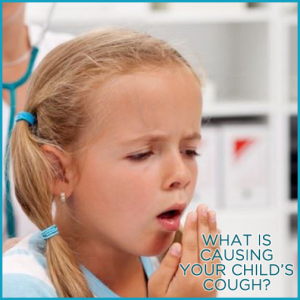 Cough and cold are the most common afflictions of children both young and old. Preschoolers suffer from coughs 3-8 times a year and older children up to 4 times. But there is a lot of confusion surrounding coughs and why they are caused. Here’s an article hoping to clear away some of those misconceptions and an easier (read less worrying) recovery.
Cough and cold are the most common afflictions of children both young and old. Preschoolers suffer from coughs 3-8 times a year and older children up to 4 times. But there is a lot of confusion surrounding coughs and why they are caused. Here’s an article hoping to clear away some of those misconceptions and an easier (read less worrying) recovery.
Coughs are usually caused by viruses. It is what we generally refer to as a viral infection. Since viruses are microorganisms that are neither alive nor dead (seriously!), it is impossible to eradicate them. Antibiotics are of no use on them. So basically, the infection has to run its course. It may last anywhere from 5 days to 12 days. A typical infection throws up symptoms like a head cold, runny or stuffed nose, sore throat, cough and sometimes a fever as well. The paediatrician may prescribe medicine to allay the symptoms of the viral infection (cold, cough, etc), but there is no cure for the infection itself.
However, there are cases when cough can be caused by allergies. If your child is allergic to dust mites, pollen, animal dander, etc, the cough may present itself whenever there is contact with the allergen. The only recourse is to administer antihistamines prescribed by your child’s paediatrician.
In rare cases, Pneumonia, an infection of the lungs can cause a persistent cough. It is also accompanied by difficulty breathing, a cold, fever body aches and chills. If you suspect pneumonia, it is a good idea to take your child to the paediatrician.
Bronchitis is another rare cause of a persistent and hacking cough several weeks after a viral infection. Bronchitis is an infection of the tubes carrying air to the lungs. This too can be either viral or bacterial. If it is bacterial, antibiotics will work. The paediatrician should be able to tell you whether the infection is viral or bacterial.
When to call a doctor, when a child has cough:
If your child is less than 3 month old
If breathing is laboured
Is coughing mucus that is streaked with blood
Is younger than 6 months and has a fever of 101 or above
Is over 6 months and has a fever of 103 and above
Is coughing after choking on something
Coughing causes vomiting
In any case, avoid administering any medication till you have prior permission from the doctor. Over the counter cough medicines do more harm than good. Mixing 2 or more types of cough medicines can cause a fatal combination in some cases.
Till the doctor is able to give you a definite course of action, try some simple home remedies for relief. Honey works wonders on cough. Try it!
Early warning signs of a learning disability
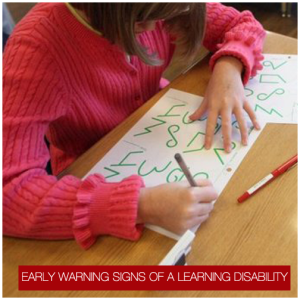 Can I tell if my child has learning disability?
Can I tell if my child has learning disability?
Children till the age of 5 learn skills at different rates. If a child is adept at speaking, he may be slower to comprehend numbers. Similarly, a child who is adept at physical manoeuvres and play may learn the alphabet later than others. This varying rate of learning new skills can throw parents off the correct way to diagnose if there is a problem.
Learning disability falls into 3 wide categories:
Speech and language problems
Reading writing and math problems
Coordination, motor skills and memory problems
However, sometimes the disability is quite apparent such as dyslexia (reading impairment) or dyscalculia (math solving impairment).
What exactly goes wrong in a child with learning disability?
A child with learning disability who has a normal IQ, like any regular child, cant process accurately information that gets passed on from the eyes and ears to the brain. The child knows what he/she wants to accomplish, but can
Problem Solving and Conflict Resolution for Children
As a parent how did you learn to resolve conflicts? Doubtlessly, your biggest influencers were your parents. You learnt your early lessons from them and unknowingly emulated their responses and attitudes when resolving conflict. Now, these are a part of your psyche and intellect more than you would ever want to admit.
Conflict resolution is not like math. It is an art that needs to be experienced, interpreted and learnt in our own unique way. When it comes to children, it is best to let them resolve conflict in their own way, albeit, with a little support from you. Here are a few guidelines that will slowly, but surely help you and your child learn conflict resolution at every level, whether it is for a very young child or an older child.
- Let them resolve conflicts. Don’t do it for them
It is challenging for any parent to hold back when a child is trying to snatch a toy from another child. After all, you want to instil the spirit of sharing early on, right? Well, this may not be the right way to do it. It is easy to swoop in and demand that your child share the toy or even take sides in your attempt to dissolve undesired situations that result in crying and heartbreak.
But intervention at this stage can prevent the child from learning it to resolve it in his own way. He will always look to you for support (if you support him) and look away from you (if you take the other child’s side). Both are equally damaging.
Next time you are faced with a similar scenario, try this:
If your child cries for a toy that is with another child, express empathy. “I know you are upset that you can’t play with the teddy now”. At the same time, offer choices to resolve the conflict. “Do you want to ask Amy if she can share it the teddy with you for some time?”
- Provide safe environment for conflict resolution
If a conflict resolution scenario is getting out of hand and you suspect it will result in a physical battle, it is okay to physically remove your child from the scene and explain that hitting is not allowed. Children need us to set limits when it comes to emotions that lead to physical harm. A respectful discipline option may not work in this scenario.
- Don’t shame, lecture or use an angry/surprised tone with a child in conflict
Children are even more sensitive to others than we are. So when your child hits somebody, don’t shame him by pointing out the obvious. “Look, how you hurt Arjun! He is so sad!”
The hitting was more of an uncontrolled and impulsive reaction than the hate for Arjun. Understand that the child has a wide range of emotions running through him/her right now,
Keep a calm voice. The child is already on a emotional high and doesn’t need you to contribute to it.
There is a tremendous amount of excellent information on these techniques and teaching them to children of all ages. Google RIE and you will find tools and articles helping you to bring up self sufficient children. Make them part of your day, and a part of your child’s life and they will grow in depth and confidence.
Caring for your baby’s dental health: Prevention is the key
Your baby’s toothless smile is one of the most precious things on earth. The appearance of the first tooth is something of a milestone in your baby’s and your life. But what is disappointing is that baby teeth don’t get appropriate amount of health attention, besides the cuteness factor. Generally, a visit to the dentist is occasioned only when there is a problem. This mindset has led to a staggering number of babies facing dental issues such as decay, scarring and caries. If left untreated, tooth decay can cause pain and make it difficult to swallow food.
New research has shown that primary teeth form the foundation of your baby’s future dental health as well as over all well-being. So we decided to put together a series of do’s and don’ts for your baby’s dental health.
Age 0 to 6 months: Wipe your baby’s gums clean and wet with a gauze or a soft cloth
Age 6 to 18 months: Try to introduce a soft baby brush. Continue to use water only for cleaning
Age 18 to 24 month: Introduce a low fluoride toothpaste
- Remember, decay is caused by bacteria in the mouth. The only thing bacteria loves is sugars from food left in the mouth.
- For breastfeeding infants (even without any teeth), sleeping with milk in the mouth is the quickest way to invite bacteria to gorge on un-swallowed milk.
- The easiest way to clean baby gums is to take a clean and soft cloth and wipe your baby’s gums before she falls asleep and every morning. If the baby is going to stay awake, the saliva formation will wash down remnants of milk in the mouth.
- If the baby uses a pacifier, don’t dip it in sugar or honey. Plain water works best in the long run.
- If the baby has a habit of falling asleep with the milk bottle in her mouth, gradually replace milk with water.
- Avoid adding sugar to milk and food
- Fluoride is essential to your child’s dental health. Toothpaste containing fluoride is the best for everyone in your family. But make sure that the baby doesn’t swallow the toothpaste. Swallowing excessive fluoride can also result in staining of the teeth.
- If your child already has tooth decay, do not delay a visit to the dentist. The primary teeth are very important for the permanent teeth to be healthy and in the right place.
However, teeth cleaning alone aren’t a guarantee against tooth decay. If despite taking appropriate steps your baby has tooth decay, it probably has something to do with the baby’s diet and warrants a visit to the paediatrician.
How to help underweight toddlers gain weight
The travails of a parent whose toddler is underweight can only be felt, not described. Children usually follow a predictable growth pattern. They triple their weight in the first year of their life, and thereafter a kilogram every 3-4 months for the second year of their life. However, not all children follow the same pattern. Each child develops at a different pace. So when does a parent start to worry about poor or no weight gain? A month, 2 months or 6 months of no weight gain? Or more?
There is no correct answer to this because there are a lot of factors that can affect weight gain in a toddler.
- Genetics: If the child’s parents are lean, chances are the baby will be skinny too
- Dietary restrictions such as dairy free diet, vegetarian diet or a vegan diet can put the child at a risk of being mal nourished
- Recent illness or medications can kill diet temporarily resulting in poor weight gain or even weight loss
- Emotional upheaval: A change of scenery that didn’t go down too well with your toddler may directly affect hunger
- An increase in height that precedes weight gain
However, if your gut feeling tells you to get an expert opinion, the best person to give it is the paediatrician.
Assuming your child has no underlying medical problem, you can proceed with the following to ensure that your child is getting enough calories. The rest will follow.
- The best way to get your toddler to gain weight is to increase his calorie intake with heart healthy foods such as nuts, vegetable oils, dry fruits, dairy, carbohydrate heavy fruits and vegetables. Don’t forget the protein found in eggs, peanut butter and beans.
- Avoid filling up the calorie count by means of ‘junk food’. These are empty calories that do nothing to help your child develop holistically.
- If your toddler is a fussy eater, you have to ensure two things are always right. First that the meals are calorie and nutrient rich and secondly, that meal times are enjoyable and an unhurried affair.
- If nothing else works, your doctor may prescribe a high calorie supplement drink.
- Filling up on milk and other beverages is a common hunger killer. It leaves little room for other nutrient rich foods that are necessary for weight gain.
- Increase the frequency of meals. Add 2-3 snack times to ensure that the child is meeting his daily quota of calories, as prescribed by the paediatrician.
- Keep a daily diet chart of the child’s diet plan and stick as close to it as possible.
Once this checklist is in place and you have begun to follow it, do not be in a hurry to check your child’s progress daily. Let the doctor do it at a monthly interval. This will ensure that the child doesn’t become too self conscious about his/her weight.
Coping with Cyber Bullying: What Every Parent Needs to Know
When you and I were in school we might have experienced bullying, either personally or from a distance, in the classroom, the playground or recess time. For our children today, bullying has taken on another dimension…the virtual dimension. This is something that you and I as adults may not even be aware of. But parents, this is out there and it is REAL for our children, especially our tweens and teens. Part of the reality is that digital technology and the internet play a huge part in the lives of our children as they use it for school assignments and their social life. This social connectivity can be online or via their mobiles, be it on Facebook, Twitter, Whatsapp and other social media sites.
So, what is Cyber Bullying?
Cyber Bullying has been defined as when a child, preteen or teen is tormented, threatened, harassed, humiliated, embarrassed or otherwise targeted by another child, preteen or teen using the Internet, interactive and digital technologies or mobile phones.
It can include abusive texts and emails, hurtful messages, images or videos imitating others, excluding others online, nasty online gossip and chat.
The fact that cyber bullying can happen 24/7 [and not just in person], can be done in anonymity, and once out there can go viral, makes cyber bullying even more damaging than traditional face-to-face bullying.
As a parent what should I know?
The first thing is for you to get acquainted with your child’s cyber world. Find out where your children surf, what are the popular social sites amongst kids and talk to your kids about the possibility of cyber bullying and safety. Do reinforce that even if they see a post that is targeted at another child, by their ‘liking/ sharing/forwarding’ it they are guilty of cyber bullying by association.
The next thing is to look for signs that might point to your child being cyber bullied. Some of these might be:
- Changes in online behaviour– is your child suddenly spending less time online? Has he asked you about closing down his account, or about security features to block others out?
- Distress– does your child become annoyed, upset, stressed or angry after he has been online? Has his school attendance or performance reduced?
- Secrecy–does your child act secretively when using the internet or phone? Does he close down the computer when you walk into the room?
Also Read: Keeping your Kids Safe Online
As a parent how can I help if my child is being cyber bullied?
If you worry that your child is being cyber bullied, talk to him. Assure him that you are on his side, that he did not do something wrong and he does not deserve to be bullied. Here are some tips you could share with him:
- Do not respond or retaliate. Tell him to talk to you about it, rather than ‘letting off steam’ online by seeking revenge online. It could make things worse and he might be accused of cyberbullying.
- Tell him to block the bully and change his privacy settings. With your help he can also report this to the site administrator and the school authorities.
- Help him save these abusive messages as evidence, like phone messages, print emails or social networking conversations/photos. He can also tell their friends that might be privy to these messages to collect this too.
- Encourage him to be involved in anti-cyber bullying campaigns. There are many such initiatives online. This will give him a sense of control and empowerment. If he knows of a friend being bullied, remind him not to join in. If he feels confident, he should also stand up for his friend online.
Bottom line, parents you have to be aware and get familiar with the virtual world that your child is a part of. In this case, ignorance is not bliss!
Happy Parenting!
Also Read: Teens and Social Media
Re-published with permission from the blog of ParentEdge, a bi-monthly parenting magazine that aims to expose parents to global trends in learning and partner with them in the intellectual enrichment of their children. This blog was written by Aparna Samuel Balasundaram. She is a USA- Licensed Psychotherapist and Parent and Child Expert with 10 years of experience in the USA.
